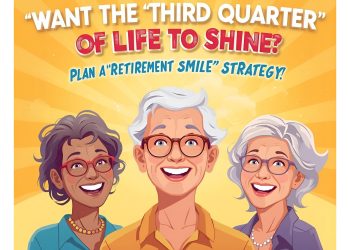Retirement is slipping out of reach for millions of Americans. A new survey shows that more than 40% of adults fear they may never retire, a sign of growing anxiety about financial security in later life.
Rising Costs Fuel Fear
Inflation and high living expenses are major reasons for concern. Everyday essentials such as food, rent, and healthcare continue to rise faster than incomes. According to a survey by Thrivent, over one-third of adults believe they may never be able to stop working. Many respondents said their savings simply cannot keep up with the cost of living.
Social Security Worries
Uncertainty over the future of Social Security adds to the stress. Nearly half of younger workers say they are not confident the program will be around in its current form by the time they retire. This aligns with long-term warnings about the trust fund facing depletion in the next decade.
Older Workers Hit Hard
The fear is not just among the young. An AP-NORC poll found that around 25% of Americans over age 50 who are not yet retired expect they will never stop working. Many in this group either started saving late or saw their retirement accounts drained during recent market downturns.
Savings Gap Widens
The U.S. retirement savings gap remains stark. Millions of households have less than $10,000 saved, and a large share have nothing at all in retirement accounts. Financial planners say this makes people heavily reliant on continued employment well past traditional retirement age.
A Generational Divide
Younger generations face their own challenges. Student debt, housing affordability, and job insecurity make it harder to save consistently. Surveys show Gen Z and millennials often prioritize short-term financial needs, leaving retirement planning on the back burner.
Changing View of Retirement
Despite the grim numbers, some Americans are redefining retirement rather than abandoning it. Instead of full exit from work, many plan for “semi-retirement”– working part-time, freelancing, or starting small businesses later in life. Experts say this reflects both necessity and a cultural shift, where retirement is less about rest and more about flexibility.













